Yael Zacharia: 'I Told My Husband We Either Let Him Go or Invest Everything in Him. We Won'
Hallel Zacharia, 17.5 years old with Down syndrome, is a testament to the power of prayers and dedication. An inspiring interview with parents who chose to invest everything possible in him.
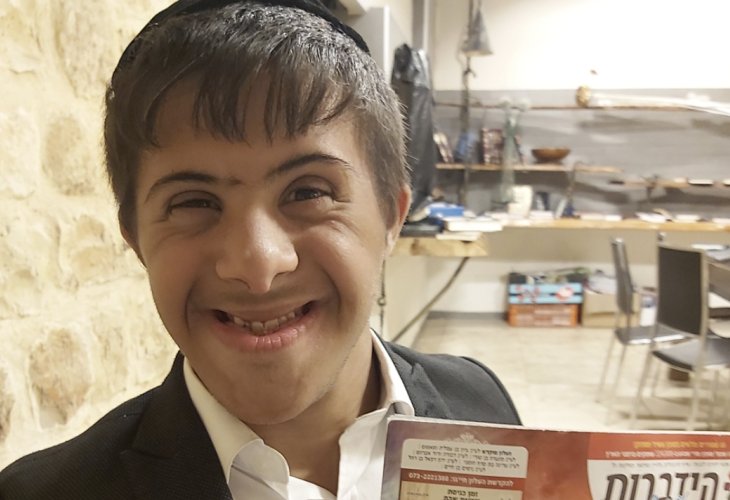 Hallel Zacharia
Hallel ZachariaAnyone who hasn't seen Hallel Zacharia hasn't seen a sweeter teen with Down syndrome. Even the toughest person can't help but smile with joy just walking past him. Hallel is a captivating personality, always smiling and loving everyone. When I asked him who he loves most in the world, expecting him to say his mom or dad, he answered, 'I love everyone the most, all the people in the world, they're all good and cute people,' Hallel tells me. No wonder the world returns his love.
Hallel Zacharia is 17.5 years old, the youngest in a family of ten children, living in Bnei Brak. 'Hallel is my gift in old age,' says Yael, Hallel's mother, recalling Hallel's birth, a nightmare for any birthing mother.
'It was my tenth childbirth, and it got complicated. I lost oxygen, and the fetus's pulse was very low. Miraculously, he managed to get a little oxygen, without which he would have been completely delayed. I remember many doctors came to the birth, and it was clear something unusual was happening. My husband wasn't there, and I had to deal with those moments alone. When my husband returned, the doctors were sure the baby had Down syndrome, but they didn’t tell us yet; they just wanted my husband to notice his face, and they asked him: "Who does he look like?" My husband answered that the baby looked like his sister. Later, the doctors asked if he noticed the line on his hand, one of the signs of Down syndrome, but my husband didn’t understand what they wanted from him. I, however, immediately understood. They took me to a recovery room, and the midwife kept coming in and out. When my husband was outside, I asked her if the baby had Down syndrome. She asked why I inquired. I explained that I’m a special education kindergarten teacher and I know the signs. She said she wasn’t allowed to tell me and immediately left the room.'
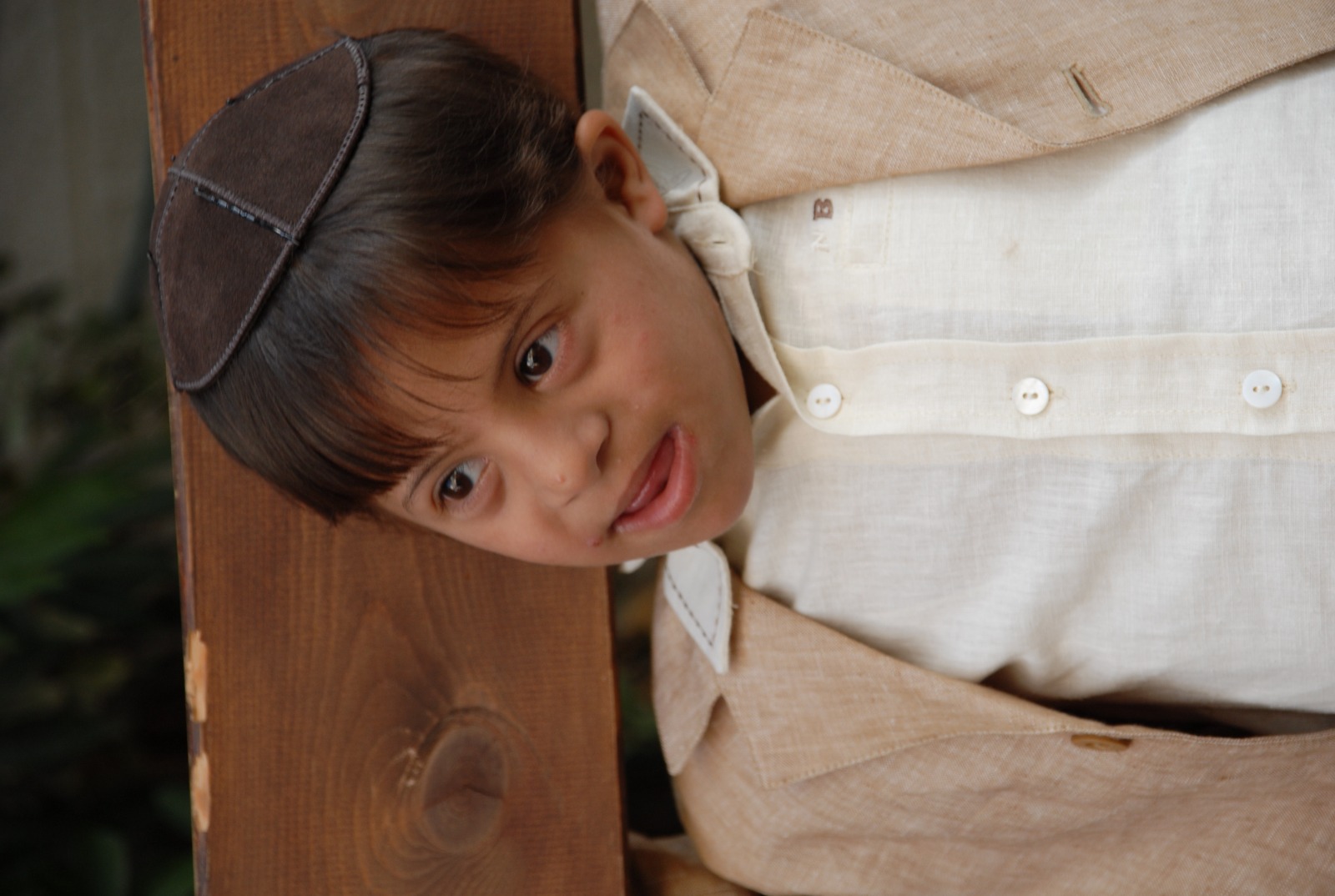
The First Challenge
When did they decide to inform you?
'After recovery, I was moved to the maternity ward, and a few hours of sleep later, a social worker and doctors arrived. I immediately understood what they came to tell me. They were sure I'd take it hard, but I told them I knew these precious souls, and I knew I was gifted a wonderful present. I prefer this over a dropout child, God forbid. Immediately after, my husband, who has no experience with Down syndrome, came in, and I told him that our child was born with the syndrome. He was shocked and took it very hard. I told him at that moment that we must decide now whether we take the child and give him all our soul and all the needs required or we put him up for adoption now. I didn't truly mean it, I just wanted to shake my husband and present him with both options, because there’s no middle way. My husband thought for a few moments, gathered courage, and said: "We're taking him and investing everything in him." This was a split-second decision that changed our lives entirely.
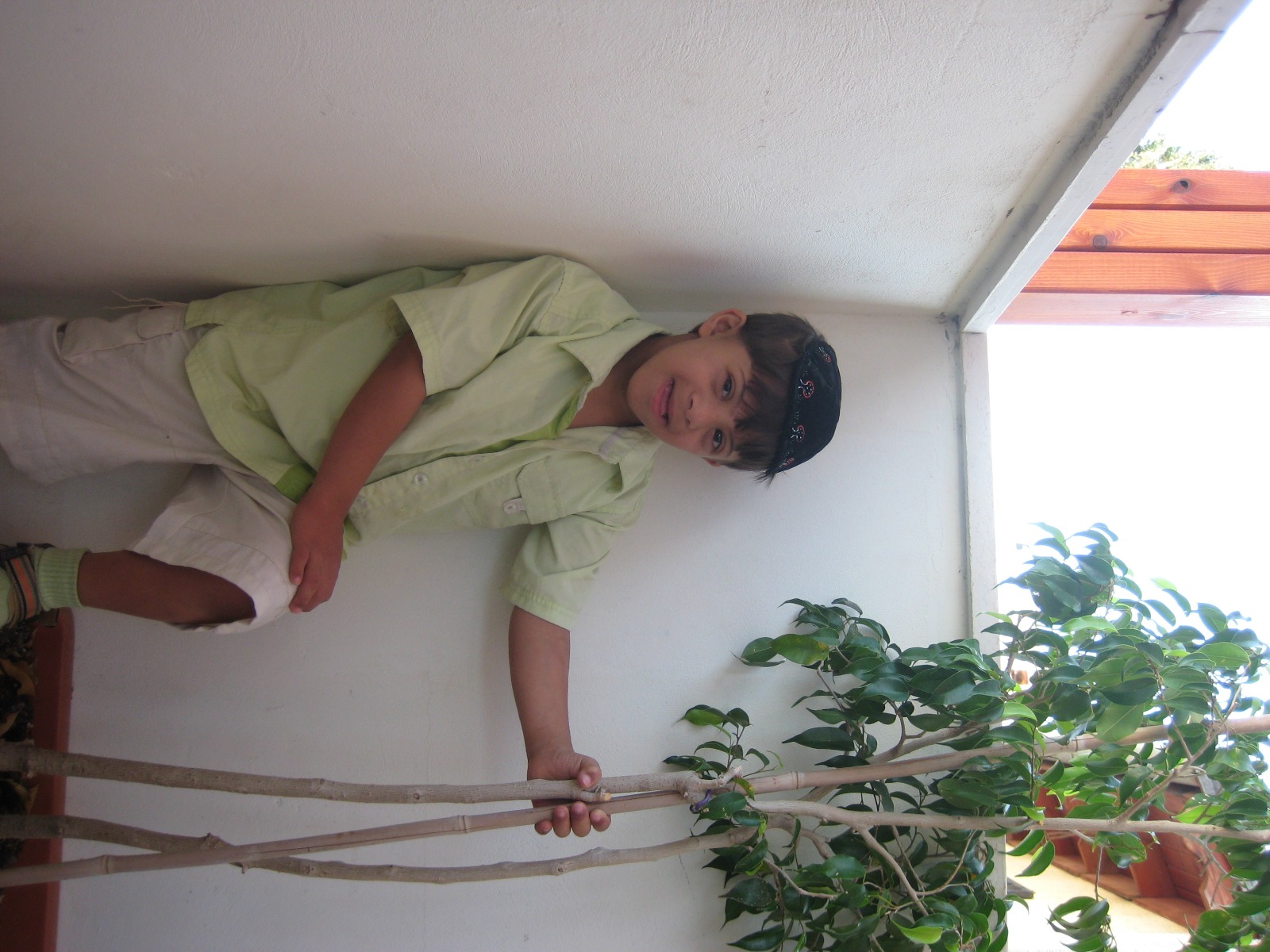
"Now the real challenge began," Yael recalls, "how to tell, who to tell, and when to tell. In the hospital, I remained silent and shared with no one. So much so that once I heard the new mother next to me on the phone saying she gave birth to a child with the syndrome, and I sat quietly thinking I also have a child with the syndrome. At that time, my niece lived with us, set to marry in two weeks. I knew if I revealed that I gave birth to a unique child, her wedding would be overshadowed, and the most discussed topic in the family would be my child, causing her a lot of pain. Therefore, I chose not to tell everyone. Initially, I only told my eldest daughter, who was then in a seminary, and allowed her to tell only one friend because I understood she needed to express herself and tell someone. We also told our eldest son and permitted him to share it with only one friend. We took every precaution to ensure it wouldn't interfere with our niece's wedding."
And until then?
"Until then, everything seemed perfect. We had a completely standard circumcision; my husband constantly wished for him to merit learning Torah, which was his primary concern, while I prayed for his health, knowing the ailments children with the syndrome often carry, like muscle weakness, developmental delays, heart, breathing, and intestinal issues. And thank God, our prayers were answered. Our Hallel studies Torah and doesn’t suffer from the problems I feared."
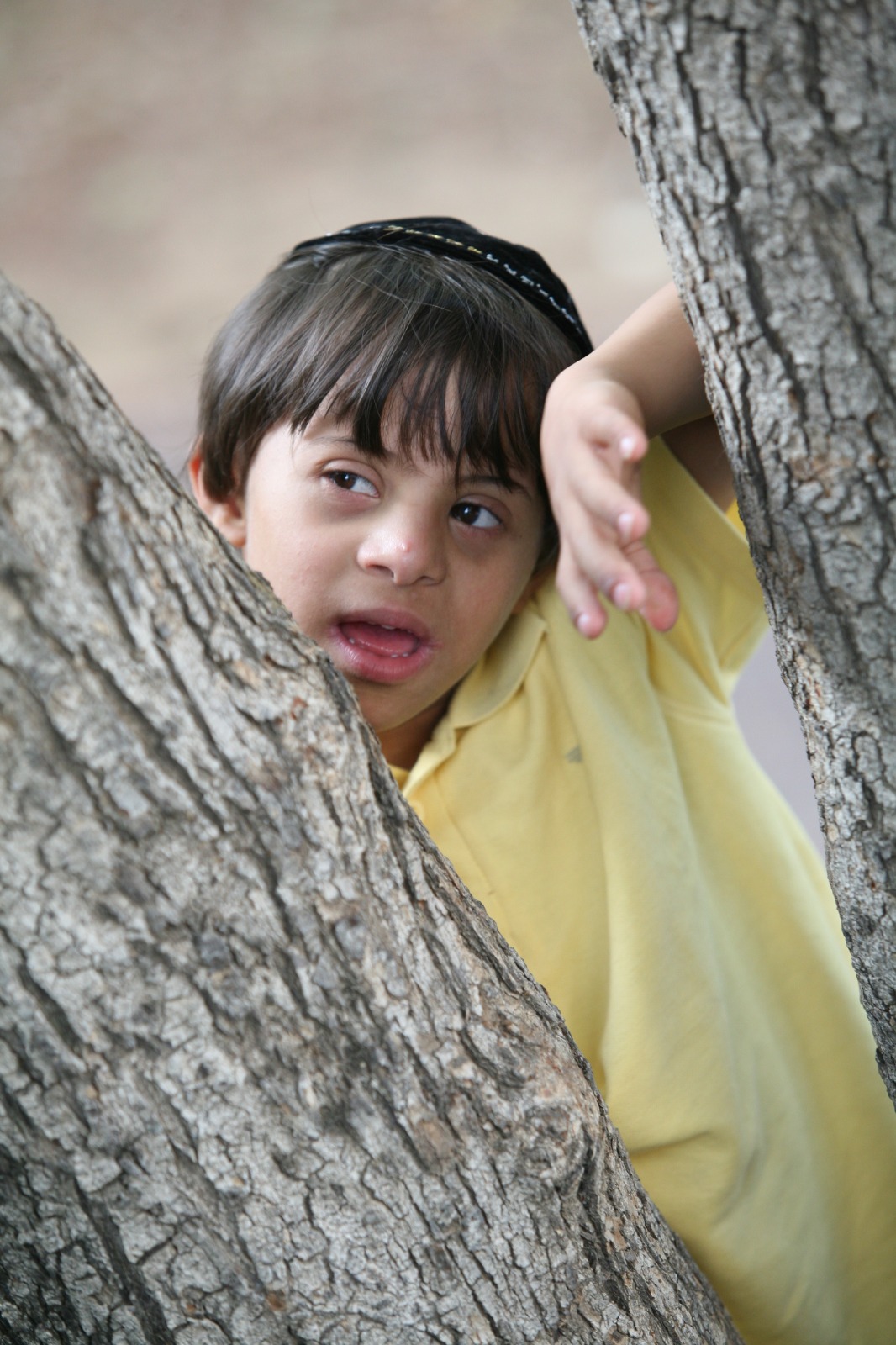
Loves the Hidabroot Organization
While speaking with Hallel's parents, Hallel quickly came in, riding a riding toy with dozens of children surrounding him. With all his charm, Hallel manages to entertain and make everyone happy.
'Where do you study?' I asked Hallel
'I study at 'Sheikh Sod' in Beit Shemesh and have a lovely rabbi,' he tells me enthusiastically. 'In yeshiva, I'm learning the Gemara, Tractate Gittin, and I’ve even studied Bava Metzia. We also have tests. I love my friends in the class, we have great rabbis, especially the CEO Shimon Levy, whom I love especially, and I want to tell him he’s very dear to me.'
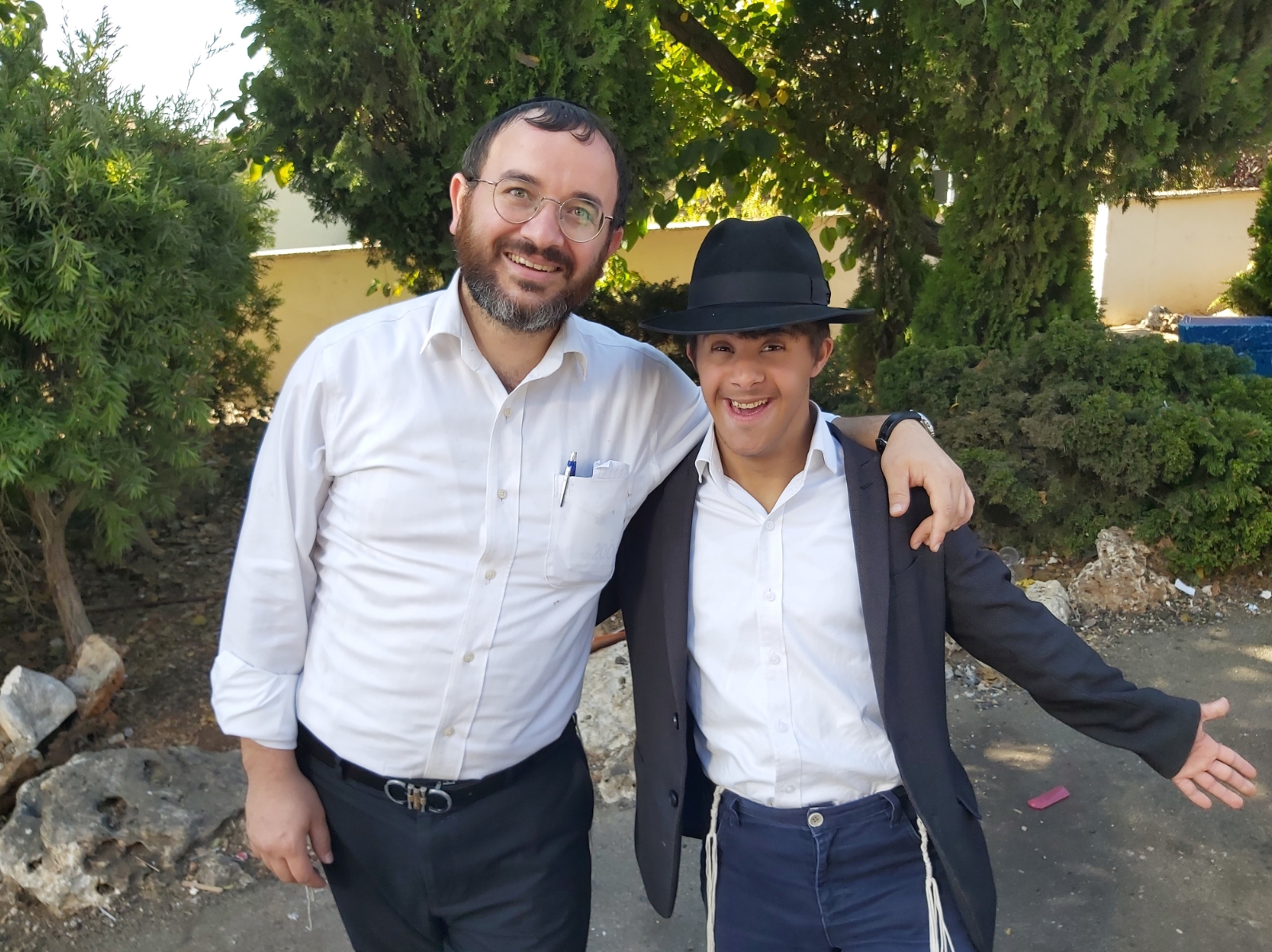
What do you do during breaks?
'We have eight kids in the class, and during breaks, we play tag, hide and seek, and freeze dance. Sometimes there’s also a gymnastics competition, and I run very fast.' To my question about who wins, Hallel replies: 'In our competitions, everyone wins, but I win the most often. Last year, I studied at a yeshiva in Beit Vagan, and we also played soccer, this year in Beit Shemesh, we don’t have it.'
How do you travel from Bnei Brak to Beit Shemesh every day?
'I have a ride every day, and it’s not hard for me at all. I make a fuss during the ride; I sing and hum to them. I love singing; I have a player and headphones and listen all the journey with joy.'
What music do you like to listen to?
'I like listening to Ishay Ribo, Motti Steinmetz, Yaakov Shwekey, Yishai Lapidot, Ruly, and Yoeli Dickman. Also Radio Kol Chai, Menachem Toker, and the great producer David Fadida.'
When Hallel realized I was from Hidabroot, he got very excited and said several times, 'I love Rabbi Zamir Cohen and Rabbi Chaim Zaid.'
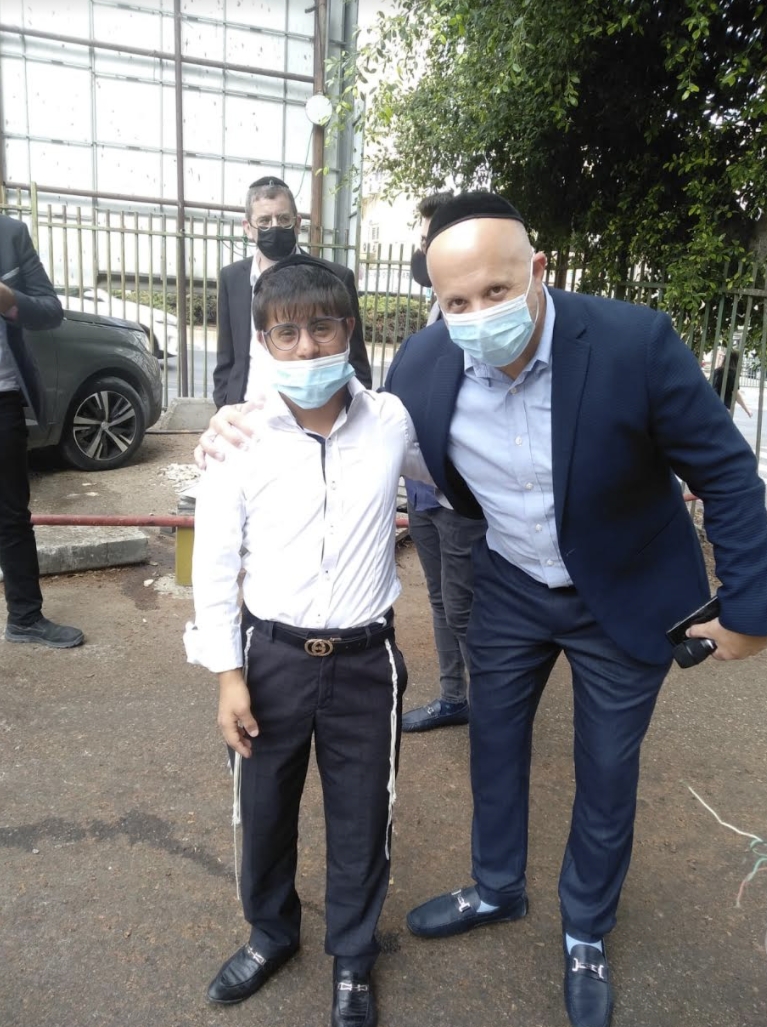 Hallel and Menachem Toker
Hallel and Menachem TokerHow do you know the Hidabroot organization?
'I get your leaflet every Shabbat at our synagogue, and if I don't find it, I go to the 'Or in Ner' synagogue in our neighborhood in the city, and after some effort, I can find the leaflet there. It’s very fun and beautiful, I love it.'
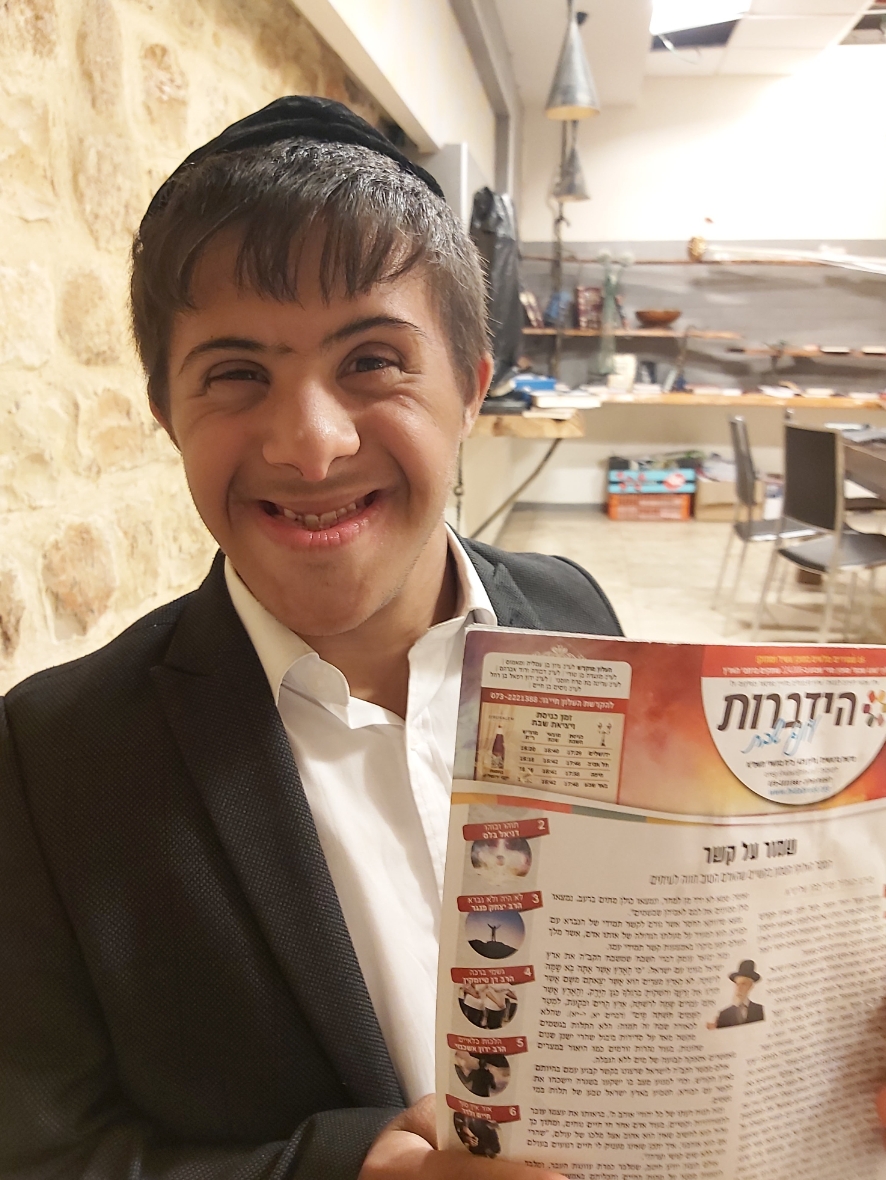
The conversation with Hallel is fluent, funny, interesting, and moving. His parents sit quietly, thrilled to see how their child has developed. 'We have shed many tears and prayers for Hallel,' emphasizes Hallel's father, R' Zacharia. 'The director of Ma'ayanei Hayeshua Hospital, Dr. Rothschild, of blessed memory, told me they sent a child with Down syndrome to Rabbi Elyashiv, of blessed memory. The rabbi asked him, "How did you get here?" The child said, "By bus," Rabbi Elyashiv said that if the child knows how to get home alone by bus, he can join the minyan. It strengthened me immensely and breathed new life into me. I remember he also talked about the capabilities of people with the syndrome, to the point where, in England, there’s a doctor who suffers, a person with Down syndrome himself, and that didn’t stop him from growing, and it encouraged me that Hallel would grow and become a great scholar.'
Rabbi Zacharia, Hallel's father, recalls the first miracle they experienced. 'Hallel was born with a large wart on his nose, and the doctors were very concerned about it and said it wouldn't go away on its own. At his circumcision, the Sandak was Rabbi Yaakov Edelstein, of blessed memory, and when he saw the wart, he stroked it for a few moments and mumbled something to himself. At that moment, one of the Rabbi’s close followers told me that if the Rabbi touched the wart, then it might disappear quickly and without any harm, and indeed it happened, completely against the doctors' predictions.'
This is How I Got the Strength to Cope
May I ask about the moment you had to tell the extended family about your child?
"As I mentioned earlier, we waited until my niece's wedding passed, and it did go peacefully. Immediately after that came Passover, and again I didn’t want to tell the family to let them enjoy the holiday joyfully. After Passover, I took my 12-year-old daughter to visit a friend who has a child with Down syndrome, and we played with him. During the visit, my daughter said, 'What a cute child, I wish we had a child with Down syndrome too,' and this was a great opportunity for me to start the conversation with her and tell her that she does indeed have a brother with the syndrome. Thus, we sat down with each child and told them about the little and cute brother born to us. When I finished with the children, I called my eldest sister-in-law, who is a very wise woman, and told her, 'Listen, I'm telling you something that happened to us, and you need to communicate it wisely to the extended family, especially my mother-in-law.' She was very attentive, and then I told her we had a child with special needs, in other words, a child with Down syndrome. She was in shock and thought I was making up the whole story and was in postpartum depression. I told her everything was okay with me, and the story was entirely true. She immediately decided to inform my mother-in-law, who took it very hard, and since then, my sisters-in-law and extended family began calling. I reached the point where I had to calm them down. For me, it was already a concluded matter, and I accepted that I didn’t steal my sweet baby from anyone, and I had nothing to hide. Things escalated to the extent that I’d walk down the street, meet friends and tell them, 'Come, see, I have a child with Down syndrome.' I wasn’t ashamed of anyone.
"At the same time, we decided we were investing our whole soul in him. We bought everything new for him, broke all the norms because this is a child of sanctifying Hashem's name. A pure soul. Even Rabbi Zilberstein told us to make him look as perfect as possible, so much so that we gave him a haircut not commonly done in our community, but since it contributed to his grooming, the Rabbi told us to do it. Rabbanit Zilberstein repeatedly told us the method is to treat him as a completely regular child. Indeed, Hallel’s development was wonderful. I also remember Dr. Rothschild inviting us to a doctors’ conference, where he shouted to all the parents: 'If the Holy One, blessed be He, gave this to you, then you can, you can.' He repeated the sentence several times, and thus I got a lot of strength to deal with it."
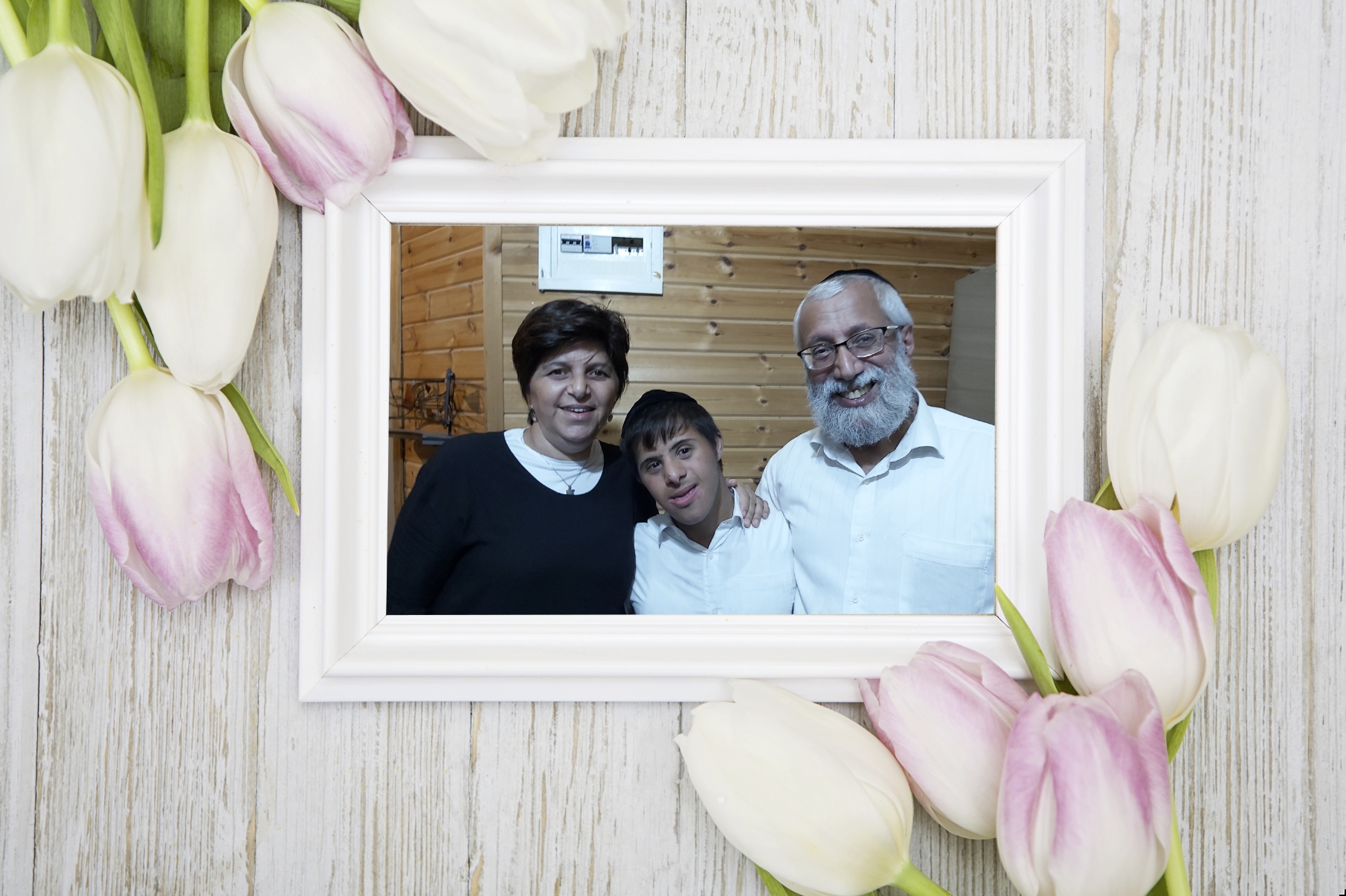 The Parents of Hallel Zacharia
The Parents of Hallel ZachariaA Model for Ezer Mizion
Do you feel that external grooming helped in his development?
"Certainly, without a doubt. The external treatment gave Hallel a very good personal feeling. The environment treated him differently, to the point where he even became a model for Ezer Mizion, starring in all their ads and advertisements. Even Channel 2, at the time, did a series of photoshoots with him. Also, Yedioth Ahronoth came to photograph him jumping and hugging Rabbi Tzholk. He became a kind of celeb, and it advanced him greatly."
Yael tells that they decided to do everything they could to advance Hallel. "Typically, children with the syndrome carry many comorbidities, and to prevent their condition from deteriorating, extensive investment is required in all fields: emotional, medical, physical and developmental. My husband and I invested a lot. We took Hallel to the best experts in every field, and we poured out a fortune on therapeutic riding, therapeutic swimming, physiotherapy, learning to read, motor skills, music therapy, occupational therapy, gastrointestinal treatment. I can testify that I spent without limit, and thank God today I see the results."
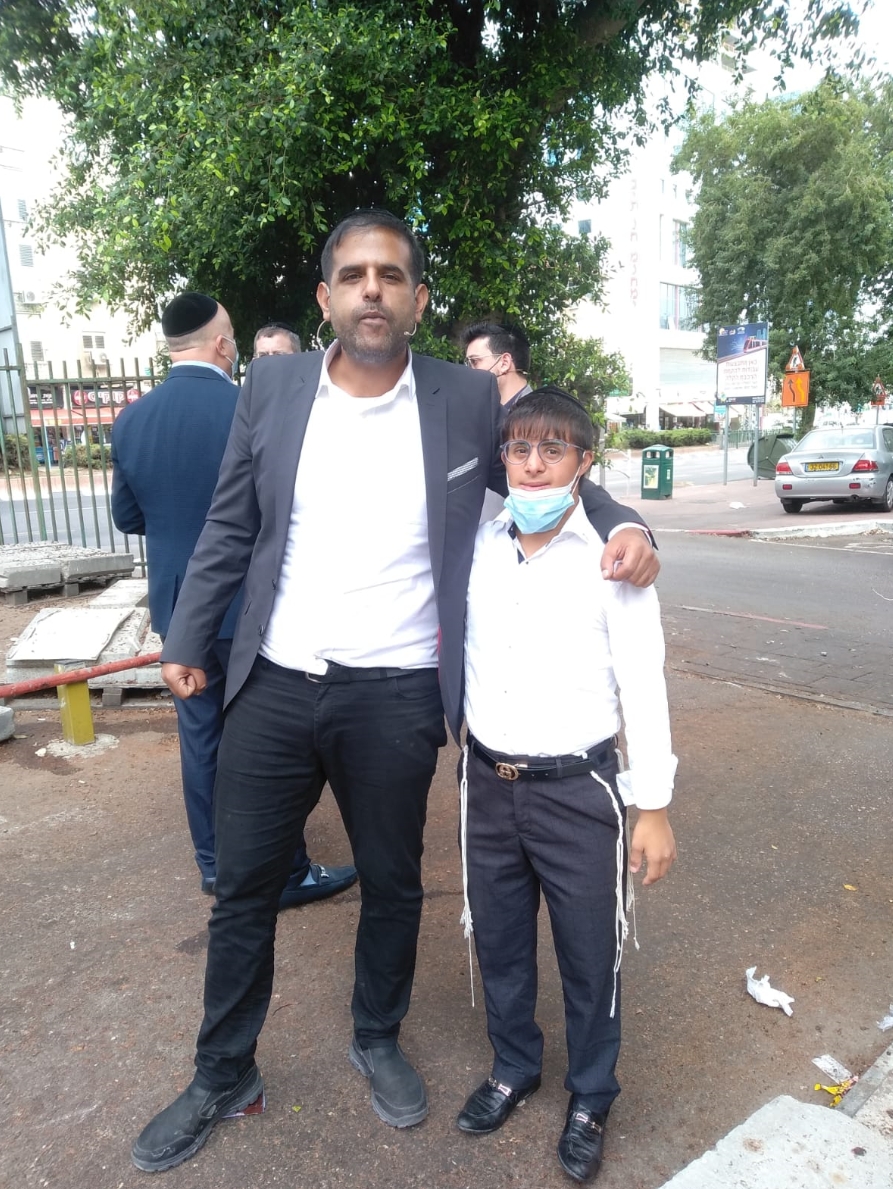
For example?
"Today, Hallel is considered a symbol of success. He understands everything, speaks everything, and even sings. He reached auditions this year for the show 'The Next Voice' on Radio Kol Chai to fulfill his desires. I remember his Bar Mitzvah period. We knew it might be a significant event in his life, and we decided to invest in it especially. My husband prepared with Hallel the Torah reading in the Yemenite style, and the event itself, which took place in the 'Armonot Hen' hall, was particularly heartwarming, with Hallel delivering a special speech by heart and confidently, which he prepared with great effort alongside his teacher at school. At the Bar Mitzvah itself, there was a parade of top singers who came to support. Composer and organist Shmuel Yafet (who composed 'Nafshi' for Motti Steinmetz and Ishay Ribo), singers Dedi Graucher, Ruly Dickman, Yehuda Felishman, Sinai Mauda, and also Yinon Tzadok, who felt like a full partner in the event. It was very joyful and especially emotional."
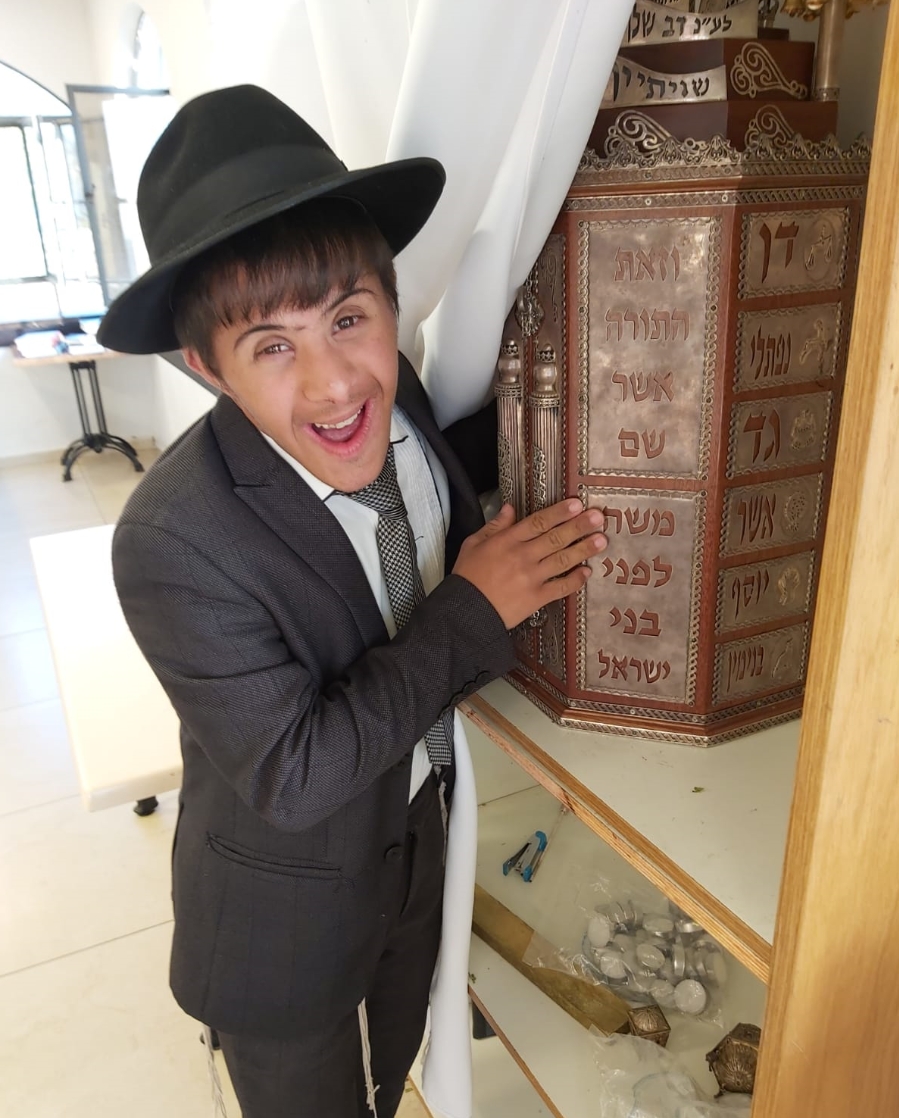
Was there something particularly breaking for you?
"I remember one thing. It was after Hallel's birth. After every birth, I came with the baby to the primary schools of his older siblings, and so I did with Hallel too. During the visit, one of the fourth-grade girls looked at him and said, 'He's not normal.' I remember then I completely broke because I didn’t think anything was visible on him at that stage.
"In conclusion, I want to say that anyone who sees Hallel understands that parents have immense power, and a lot is in their hands. If we want to invest and elevate these great souls to higher places, we will succeed with Hashem’s help."

